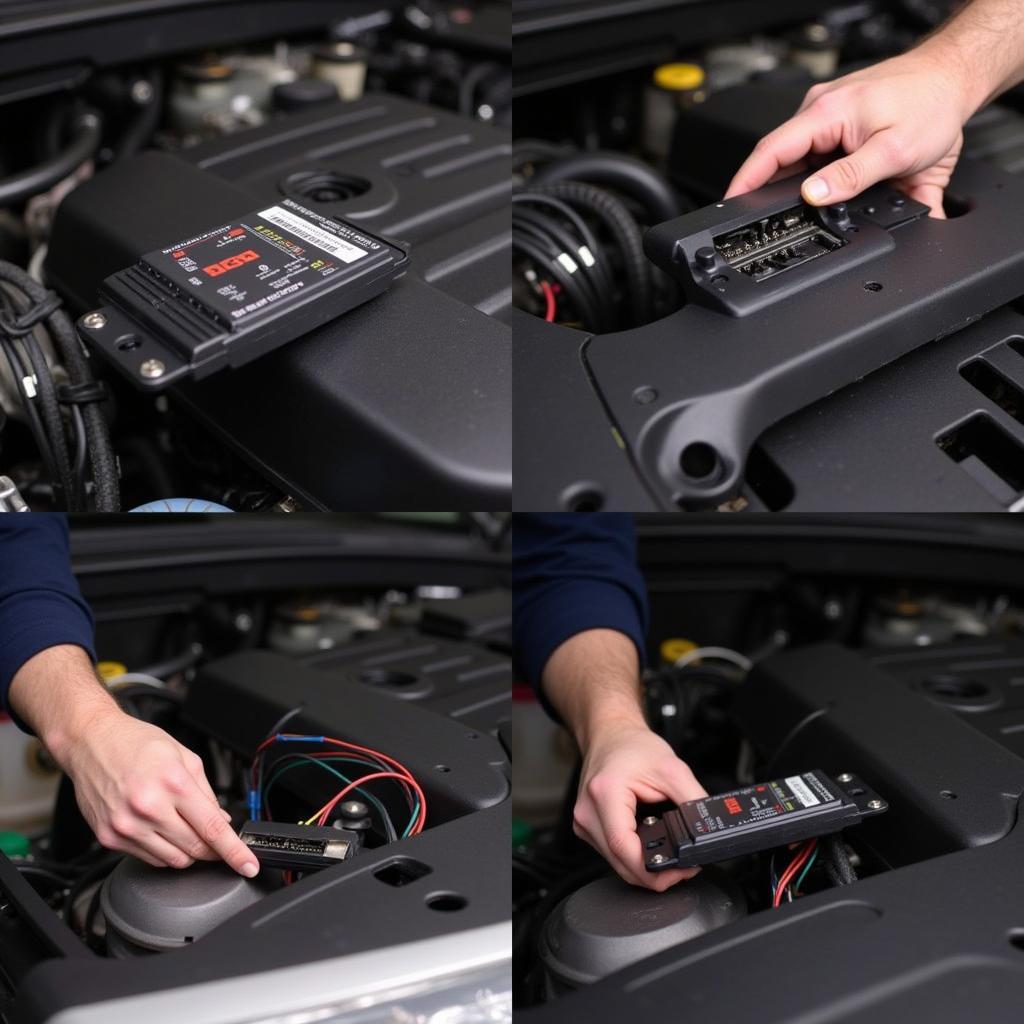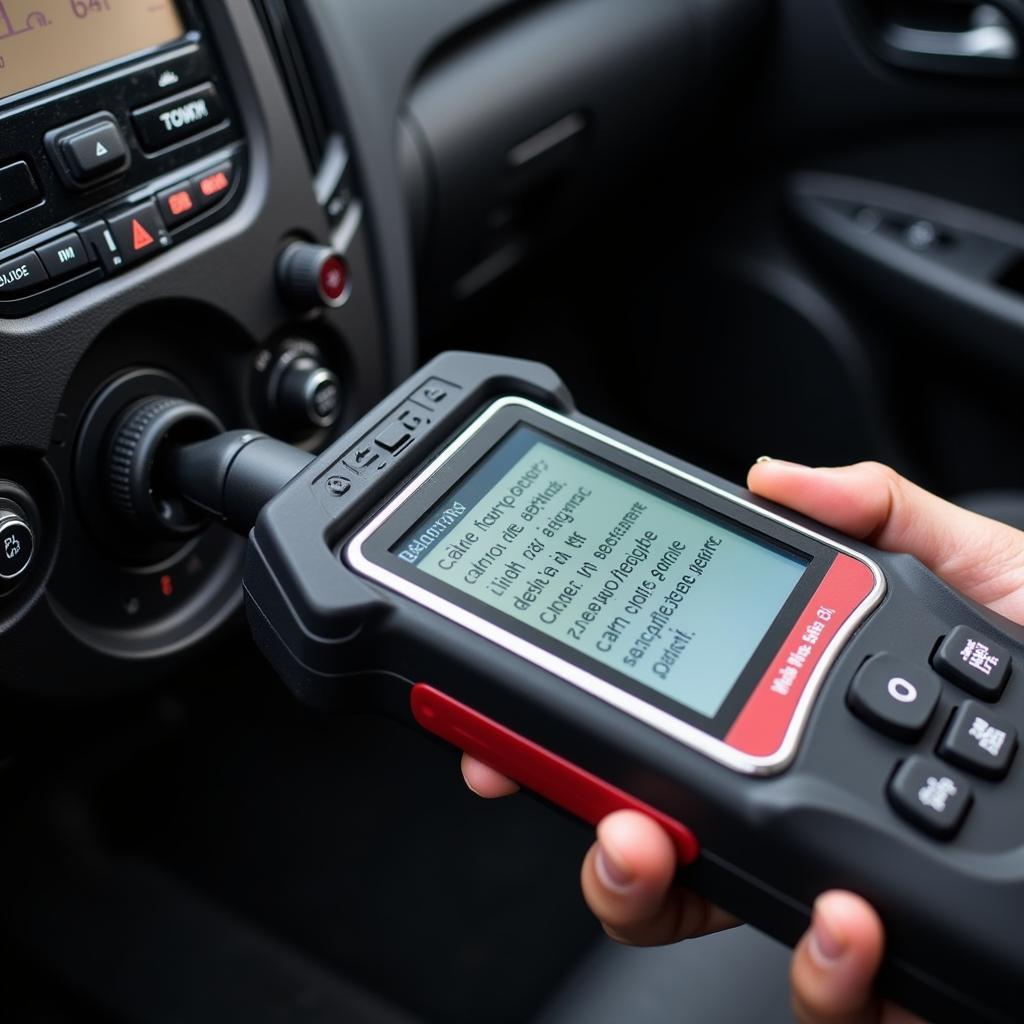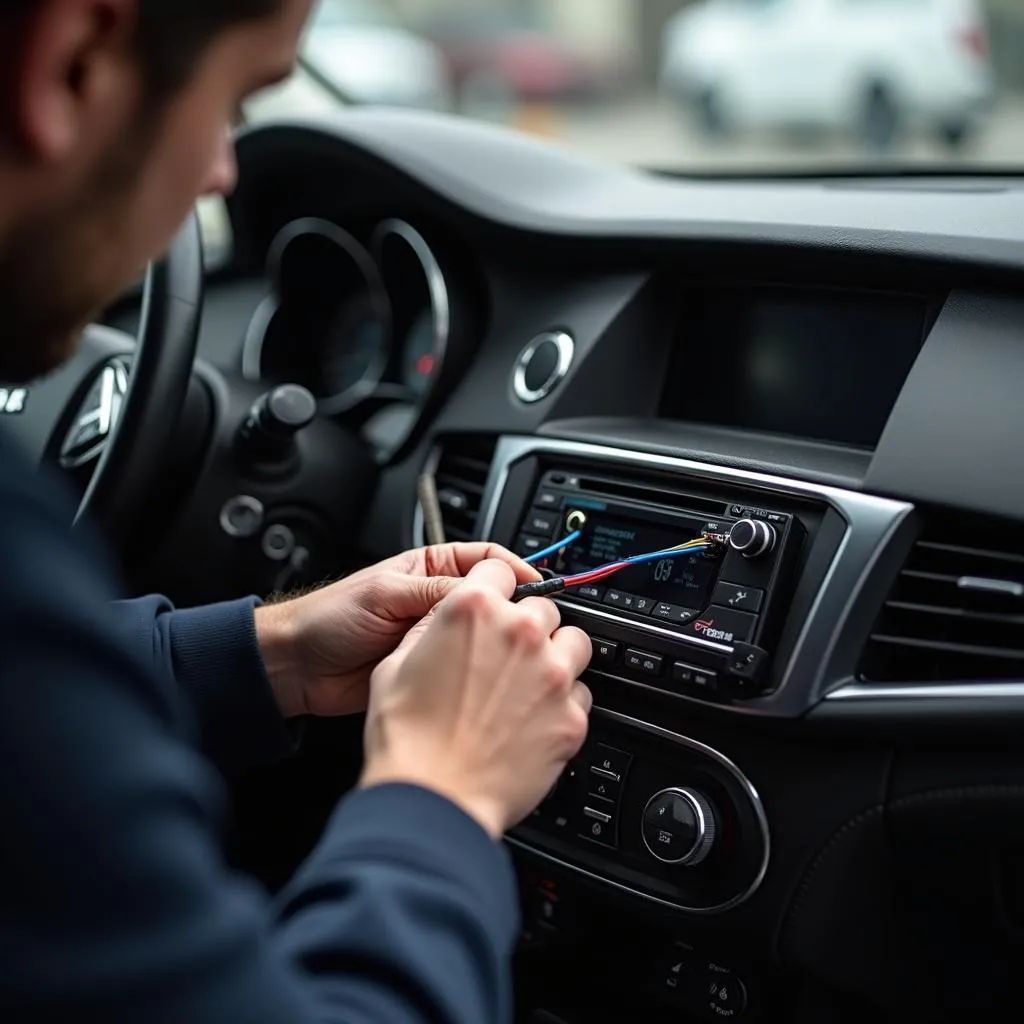A new PCM (Powertrain Control Module) and your car still won’t start? This can be incredibly frustrating, especially when you expect a new PCM to solve the problem. This article will delve into the reasons why a new PCM might not fix a starting issue and offer troubleshooting steps and solutions to get your car back on the road.
Understanding the PCM and Starting Problems
The PCM is the brain of your car’s engine management system. It controls fuel injection, ignition timing, and other critical functions. A faulty PCM can certainly prevent a car from starting, but simply replacing the PCM doesn’t always guarantee a fix. Sometimes, the problem lies elsewhere.
Why a New PCM Might Not Fix the Issue
Several factors can cause a no-start condition even with a new PCM. These include:
- Incorrect PCM Programming: A new PCM needs to be programmed specifically for your car’s make, model, and year. If the programming is incorrect or incomplete, the PCM won’t function properly.
- Wiring Issues: Damaged or corroded wiring in the engine harness can prevent the PCM from communicating with other components, leading to a no-start.
- Faulty Sensors: Even with a new PCM, bad sensors like the crankshaft position sensor or camshaft position sensor can provide incorrect data, preventing the engine from starting.
- Fuel System Problems: Issues like a clogged fuel filter, faulty fuel pump, or low fuel pressure can prevent the engine from getting the fuel it needs, regardless of the PCM’s condition.
- Immobilizer System Malfunction: The immobilizer system prevents unauthorized starting. If there’s a problem with the key, the immobilizer module, or the connection between them, the PCM might be prevented from starting the engine.
- Security System Issues: Similar to the immobilizer, a malfunctioning security system can prevent the engine from starting, even with a new PCM.
 New PCM Installation
New PCM Installation
Troubleshooting a No-Start with a New PCM
- Verify PCM Programming: Confirm the new PCM has been programmed correctly for your vehicle. This often involves using specialized diagnostic equipment.
- Inspect Wiring and Connectors: Carefully examine the wiring harness and connectors related to the PCM and other engine components. Look for damage, corrosion, or loose connections.
- Check Fuel Pressure: Use a fuel pressure gauge to ensure the fuel pump is delivering adequate pressure to the engine.
- Test Key Sensors: Diagnose key sensors like the crankshaft position sensor, camshaft position sensor, and throttle position sensor. A faulty sensor can disrupt engine operation.
- Scan for Diagnostic Trouble Codes (DTCs): Use an OBD-II scanner to retrieve any stored DTCs. These codes can provide valuable clues about the underlying problem.
- Inspect the Immobilizer System: If the immobilizer light is flashing or staying on, there may be a problem with the key, the immobilizer module, or the wiring.
 Using an OBD-II Scanner
Using an OBD-II Scanner
Solutions for a Car That Won’t Start with a New PCM
- Reprogram the PCM: If the PCM wasn’t programmed correctly initially, reprogramming it with the correct software is crucial.
- Repair or Replace Wiring: Repair or replace any damaged or corroded wiring in the engine harness.
- Replace Faulty Sensors: Replace any sensors identified as faulty during the diagnostic process.
- Address Fuel System Issues: Fix any problems with the fuel system, such as a clogged fuel filter or a malfunctioning fuel pump.
- Reset the Immobilizer System: Consult your vehicle’s service manual or a qualified technician for procedures on resetting the immobilizer system.
- Seek Professional Help: If you’ve exhausted all troubleshooting steps, it’s time to seek professional help from a qualified automotive technician.
“A new PCM is just one piece of the puzzle. Don’t overlook the basics like fuel, spark, and compression,” advises John Smith, Senior Automotive Diagnostic Technician at Smith Automotive Solutions.
Conclusion
A new PCM doesn’t always solve a no-start problem. By following these troubleshooting steps and considering the potential solutions outlined, you’ll be well on your way to diagnosing and fixing the issue and getting your car back on the road. If you’re unsure about any of these steps, seeking professional help is always recommended.
FAQ
- Can a bad battery cause a new pcm car wont start? Yes, even with a new PCM, a weak or dead battery can prevent the car from starting.
- Will a new PCM fix a bad alternator? No, a new PCM will not fix a bad alternator. The alternator charges the battery, and a faulty alternator won’t be affected by the PCM.
- How much does it cost to program a new PCM? The cost to program a new PCM can vary depending on the make and model of your vehicle but typically ranges from $100 to $300.
- How long does it take to program a new PCM? Programming a new PCM can take anywhere from 30 minutes to a few hours, depending on the complexity of the software and the equipment used.
- Can I program a new PCM myself? While some PCMs can be programmed using DIY tools, it’s generally recommended to have a professional handle this to ensure it’s done correctly.
- What are the symptoms of a bad PCM? Symptoms of a bad PCM can include intermittent stalling, rough idling, decreased fuel economy, and difficulty starting.
- Can a bad ground cause a new pcm car wont start? Yes, a poor ground connection can interfere with the electrical circuits, preventing the PCM from functioning correctly and causing a no-start condition.

